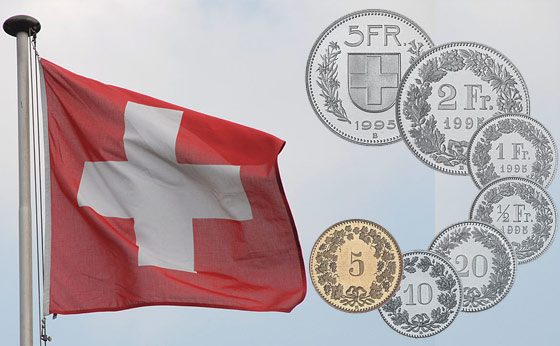Recently, economists wanted us to believe that the cap Switzerland placed on its own currency was bad. Very bad.
They told us it was unsustainable. They told us it reeked of protectionism, and that it would lead to dire losses from the central bank. Indeed, commentators and observers had us believe that the central bank would be veritably leaking money.
But let’s be a bit more balanced about things and consider a contrarian view, not simply for the fun of it, but because there’s a lot more to meet the eye about the view taken by the Swiss on the Swiss Franc than was initially credited. Let’s take a look at 3 things you didn’t know about the Swiss Franc.
#1: The Swiss Franc Cap Was Actually Sustainable
Normally, when you cap a currency, you’re trying to prop it up. But the Swiss central bank weren’t trying to prop the Swiss Franc up – they were simply trying to keep it low, worried about the risk of deflation. And because the SNB were willing to sell them as many Swiss Francs as they needed, the money was never going to run out. A central bank simply cannot run out of money to print. In this sense, the cap was entirely sustainable – it was certainly not going to vanish!
#2: The Cap Wasn’t Protectionist
The Swiss cap has been variously described as being openly protectionist, as well as engaging in so-called currency wars. Because Switzerland removed the cap, they got welcomed back as ‘good world citizens.’ How touching.
One reason the cap could have caused the implementation is the danger that other nations were hugely over-valuing the Swiss Franc. This is perhaps true, but it’s not the main reason it got introduced. Instead, the Swiss central bank got worried about deflation, and by capping the Swiss Franc, they managed to ramp up prices.
#3: The Swiss Weren’t Worried About Big Losses Regarding its Euro Holdings
If the Swiss central bank hadn’t have abandoned its cap, commentators mused that its Euro holdings (it was buying up a lot of Euros) would have swollen catastrophically. Last autumn, it was holding close to €200 billion.
The idea of the public was that its Euro hoardings would inevitably suffer because the Euro would eventually lose value against the rising Swiss Franc, thus leading to huge losses. But the way central banks work is a little more complicated than the way a commercial bank works. Insolvency certainly isn’t crippling, whilst a central bank doesn’t go broke like a commercial bank does. If money woes are so bad, they can print more money. In short, the Swiss weren’t worried about big losses on its Euro holdings. Their ‘debts’ were sustainable.





